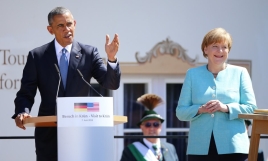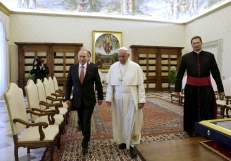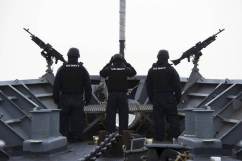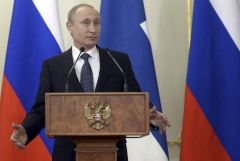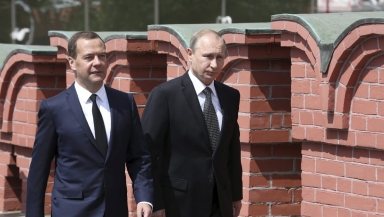
Russia is "playing with fire" with its nuclear sabre-rattling and the United States is determined to prevent it from gaining a significant military advantage through violations of the Intermediate Nuclear Forces Treaty, the deputy US defence chief said on Thursday.
Deputy Defense Secretary Robert Work, speaking to lawmakers in the House of Representatives, also said modernising and maintaining US nuclear forces in the coming years would consume up to seven per cent of the defence budget, up from the current three to four per cent, and could squeeze other programs unless additional funding was approved.
Speaking to the House Armed Services Committee, Work said Moscow's effort to use its nuclear forces to intimidate its neighbours had failed, actually bringing NATO allies closer. He also criticised what he called Russia's "escalate to de-escalate" strategy.

"Anyone who thinks they can control escalation through the use of nuclear weapons is literally playing with fire," Work said. "Escalation is escalation, and nuclear use would be the ultimate escalation."
The deputy defense chief said Russia continued to violate the Intermediate Nuclear Forces treaty, which bans ballistic and cruise missiles with a range of 500 to 5,500 kilometers (315 to 3,450 miles).
Work said the Pentagon was developing options for President Barack Obama to consider to respond to the treaty violations and would not let Russia "gain significant military advantage through INF violations".
The United States is about to embark on a costly long-term effort to modernise its aging nuclear force, including weapons, submarines, bombers and ballistic missiles. Estimates of the cost have ranged from $355 billion over a decade to about $1 trillion over 30 years.
The modernisation comes as the Pentagon struggles with tight budgets and the need for other expensive weapons like the F-35 Joint Strike Fighter and new warships.
Work said the nuclear force modernisation was expected to cost an average $18 billion per year from 2021 to 2035 in constant 2016 dollars.
The Pentagon's annual base budget has been about $500 billion for several years.
"Without additional funding dedicated to strategic forces modernisation, sustaining this level of spending will require very, very hard choices and will impact the other parts of the defence portfolio," Work said.
Arms control groups say the US nuclear force is larger than needed to accomplish the president's strategic aims, and the Pentagon could save money by prudently trimming the size of the nuclear triad and other steps.










